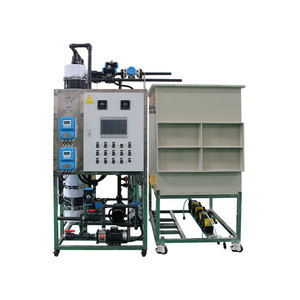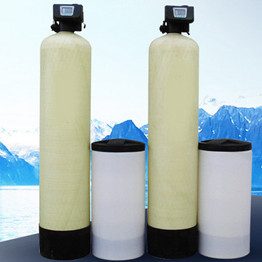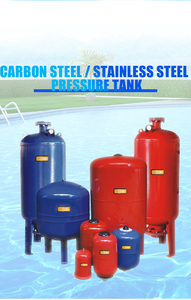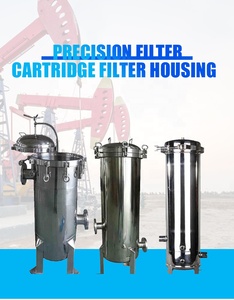(21778 products available)

















































































































































































































Descaler water is a machine that reduces the mineral content of water, making it suitable for facilities that use heating elements and those that do not need mineral-rich water for consumption. Depending on the mechanism of operation, the types of water descalers can be grouped into the following three kinds:
Chemical Descalers
Chemical descalers are solutions or compounds used to remove calcium carbonate deposits, typically known as lime scale. Chemical descalers function by using compounds that can react with the mineral deposits to dissolve them. Commonly used chemical descalers include citric acid, acetic acid, or phosphoric acid. These acids are safe and biodegradable and break down the mineral deposits thoroughly. When using chemical descalers, applying the solution precisely according to the manufacturer's recommendations is critical. This may involve diluting the descaler, applying it at a specific temperature, or leaving it for a prescribed time. After chemical descaling, it is important to rinse the area thoroughly to neutralize any remaining chemical residues.
Eletrolytic Descalers
Electrolytic descalers use electrolysis to remove mineral deposits. Electrolysis is a chemical reaction that occurs when an electric current flows through a liquid solution. It changes the composition of the solution, resulting in various chemical reactions, including descaling. Electrolytic descalers typically come with a power supply that connects to the device being cleaned. It's important to note that electrolytic descalers require power supplies and may not be suitable for all applications. Additionally, when using an electrolytic descaler, the specific type of electrolytic device must be considered to ensure that the correct model is used.
Magnetic descalers
Magnetic descalers work by using magnetic fields to change the shapes of minerals in the water. They consist of coils or magnets wrapped around the pipes in which they are installed. The magnetic fields then ionize the minerals and alter their crystallization. As a result, the mineral deposits will not form, and water with altered mineral composition will flow freely through the pipes. Users have the advantage of magnetic descalers being easy to install and generally low maintenance. No chemicals are involved, making them environmentally friendly options. Nevertheless, the effectiveness of magnetic descalers is still being debated, and they might not work for hard mineral deposits.
Descaling water reinforces equipment and infrastructure using water, especially in areas with hard water. Industrial plants like power stations, manufacturing factories, assembly lines, and food and beverage facilities regularly use water descalers to maintain the efficiency of their pipes, boilers, valves, pumps, kettles, and heat exchangers.
Water descalers are useful for hospitality businesses like hotels, restaurants, and cafés regularly using water for cooking, drinking, and cleaning. They can use a water descaler to ensure their kitchen equipment, coffee machines, and shower heads do not have limescale buildup that can compromise guests' health and facilities.
Water descalers are helpful in the construction industry, especially when erecting buildings in hard water areas. They can use a water descaler to ensure building water systems, including pumps, pipes, and valves, do not undergo limescale buildup that can result in costly repairs.
Health institutions like hospitals use water descalers to keep their medical equipment free from limescale buildup. Descaling ensures water system equipment like valves, pumps, and filters, as well as dialysis machines and sterilizers, function efficiently.
Landscaping businesses that use water regularly when watering plants and maintaining irrigation systems can also benefit from a water descaler. Installing a water descaler in the irrigation system will reduce limescale accumulation in pumps and sprinkler heads.
Consider the following factors before purchasing a water descaler for use or resale.
hardness
Understanding how hard the water is in the target market is crucial for selecting an effective water descaler. Water hardness is caused by mineral content, such as calcium and magnesium. The availability of different water hardness levels, ranging from low to very high, indicates that various types of water descalers are required for distinct applications. For example, industrial water descalers might be necessary for areas with very hard water.
System compatibility
Selecting a water descaler device compatible with existing plumbing or appliances is crucial. Ensuring proper functioning while minimizing installation costs is important. Descaling systems come in various forms and sizes, and compatibility with specific equipment may be necessary.
Cost
The price of a water descaler is an important consideration. It is important to find a balance between cost and effectiveness in solving the limescale problem. The cost of different types of water descalers varies, so buyers should consider the specific requirements in their area and focus on value rather than the lowest price.
Installation and maintenance
Buyers should consider the required installation and maintenance expenses in addition to the initial cost. Some water descalers need costly and complex installations. Calibration and other maintenance tasks are required for some sophisticated electronic systems, which can increase ongoing costs.
Legal Compliance and Certification
It is essential to ensure that the selected water descaler complies with local laws and regulations. This includes confirming that necessary approvals and certifications are obtained. The documentation required for particular types of descalers, such such as those used in food processing or medical facilities, should also be considered.
Q1: How long does it take a kettle descaler to work?
A1: Many descaling solutions, like the kettle descaler, work within 30 minutes to an hour. Depending on the severity of the limescale buildup, some may require longer or multiple applications.
Q2: Does the kettle descaler damage the kettle?
A2: When used as directed, the kettle descaler will not damage the kettle. In fact, it will unlock its shine and allow it to function properly. Avoid using harsh or unapproved kettles descalers, and always follow the manufacturer's instructions.
Q3: Is it necessary to rinse after descaling?
A3: Yes, it is necessary to rinse after descaling. While some descalers may be safe to leave in a kettle, most will leave a residue. Rinsing thoroughly with clean water will remove any residue and ensure the kettle is clean.
Q4: What happens if the limescale is not removed from the kettle?
A4: If limescale buildup is left unchecked in the kettle, several things may happen. First, the kettle will become less efficient and take longer to boil water. Second, it may begin to use more electricity and, in turn, increase the water bill. Third, it may become an obvious breeding ground for bacteria.
Q5: Can citric acid be used to descale a kettle?
A5: Yes, citric acid can be used as a natural kettle descaler. It is effective at breakdown limescale. To use it, simply mix a solution of citric acid and water, then boil the solution in the kettle. After boiling, rinse the kettle thoroughly.